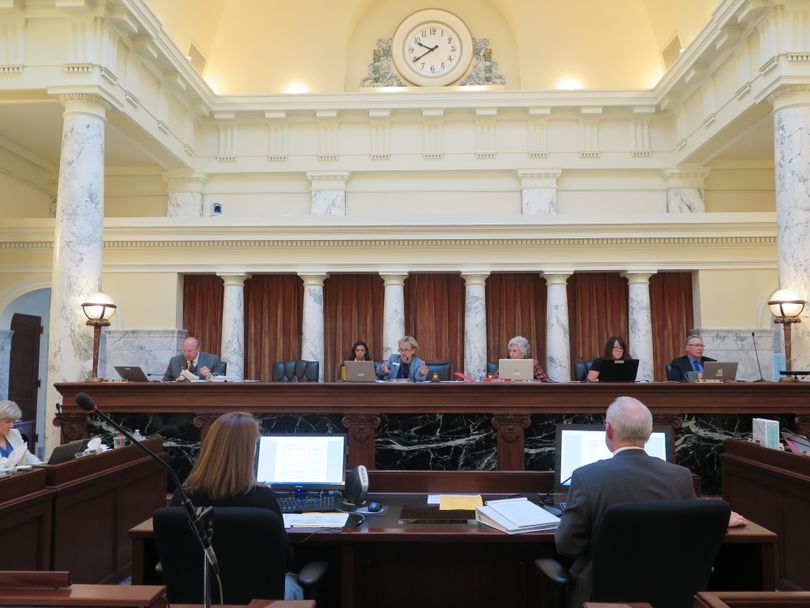First budget hearing of the session is on the governor’s office, where new info tech security program is proposed

Following two special hearings this morning – one on the state’s group health insurance plan for state employees, for which Gov. Butch Otter is proposing a two-month “premium holiday” next year to draw down excess reserves, resulting in a lower-cost request for next year of $11,650 per state worker, vs. this year's $13,100; and the other on the new 10-year plan to expand graduate medical education in Idaho – JFAC has moved on to its first budget hearings of the session. First up is the executive office of the governor, followed by the state Division of Financial Management and the budget for the legislative branch.
There are six line items in the governor’s office budget for next year that relate to Otter’s proposal to create a new Office of Information Technology. Those line items total $5.4 million, but there also are proposed reductions in the state Department of Administration budget, from which those functions will be transferred, of $3.2 million; so the net increase is $2.15 million. The request includes an additional information technology systems analyst; replacing the state’s domain services hardware; multi-agency server and storage replacement; replacement of a video conference bridge; new anti-phishing upgrades; and more.
“This will allow for greater coordination and efficiency in statewide security efforts,” Jani Revier, Otter’s budget director, told JFAC. Idaho’s new cybersecurity chief, Jeff Weak, who will head the new office, said its efforts will “harden, fortify and protect” the security of information stored in the state’s computer systems.
Paul Headlee, legislative budget director, said when the new office is up and running it would be shown as a new agency falling under the governor’s office, but because legislation creating it hasn’t yet passed, the funding is “parked” in the governor’s office budget.
Otter’s budget proposal also includes transferring the Workforce Development Council from the Department of Labor to the governor’s office to become a stand-alone agency. Wendy Secrist, executive director of the council, told lawmakers the council’s move to the governor’s office “will allow the council to more effectively work across state agencies ... to develop a comprehensive statewide strategic plan for workforce development,” and also to increase the role of industry representatives, who now comprise the majority of the council.
Also included in the governor’s office budget request for next year: $15,000 for “governor-elect transition.” That’s a statutory requirement, whenever the governor’s office changes hands.
JFAC will be holding budget hearings on the budget requests and the governor's recommendations for most state agencies over the next month; then, starting in mid-February, it will begin setting budgets for each agency. Once set by the joint committee, budget bills still need passage in both the House and Senate and the governor’s signature to become law, but they rarely change after they’re set by the 20-member joint committee.
